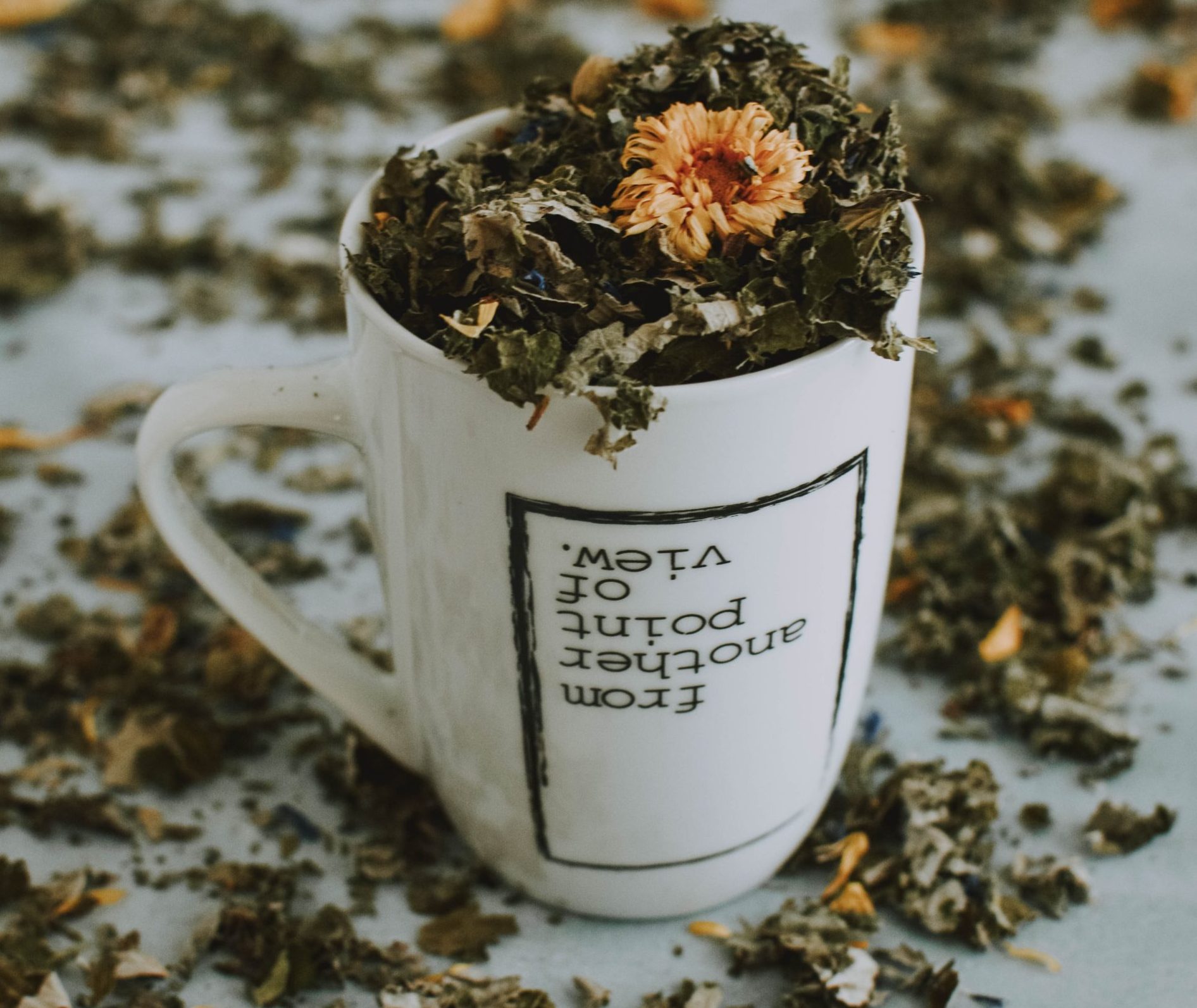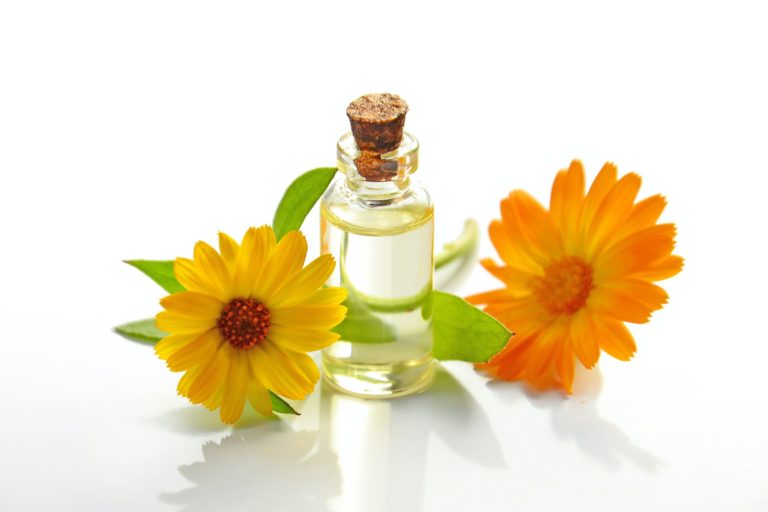Making an herbal tincture might seem like a complicated task you’d never want to undertake, but it’s far easier than it sounds. I promise.
If you can make a salad, you have what it takes to make an herbal tincture.
Read on to find out how.
First, why might you want to make an herbal tincture at home?
Tinctures – herbal alcohol extracts – provide a concentrated dose of active medicinal plant compounds in every dose.
It’s much easier to drink a a dropper of tincture mixed in water than to forage or grow fresh herbs and incorporate them into your diet in enough quantity to reap the desired health benefits. It’s also less time consuming than preparing a tea infusion every time you want to take herbal medicine.
The downside of prepared herbal tinctures in comparison to dried herbs is their cost.
A one-ounce bottle will typically cost you between $13-$17 from most suppliers. That’s fine, if you can pay that and would rather not make your own. However, that one ounce tincture will last you approximately 1-2 weeks, following a typical dose of 30-40 drops 3-4 times per day. That’s not very long.
If you make your own, though, it’ll cost you somewhere around $5-6 for 4 ounces of dried herb (up to $20 for more rare herbs) plus about $15 for 1.75 L of 90-proof vodka.
From that, you’ll get approximately two (one-quart) jars of herbal tincture. It breaks down to about 33 cents per ounce.
And, 2 quarts – 64 oz – will last you one-two years following a typical dose.
For us, it’s worth the few minutes it takes to prepare an herbal tincture for that kind of savings.
All you need to make an herbal tincture are some dried herbs, canning jars, and dilute alcohol.
Let’s get started!

1. Purchase your dried herbs.
If you already take herbal medicine on a regular basis, you probably know which herbs you want to begin tincturing.
However, if you aren’t familiar with many herbs and aren’t sure where to start – perhaps give one or more of the common herbs below a try.
Immune stimulants such as Echinacea or Goldenseal (be sure to choose ethically harvested Goldenseal, because it is endangered, or get a substitute like Oregon Grape instead)
Adaptogens (also known as immune modulators) like Astragalus, Eleutherococcus, Ashwagandha, Schisandra, Rhodiola, or Cordyceps.
Mullein, which modulates the immune system, supports the respiratory system, and combats asthma and allergies, or Eyebright or Nettle, which both help soothe allergies as well.
These are excellent to have on hand for the upper respiratory viruses and allergies most people experience sporadically.
Make sure the herbs you choose to tincture aren’t contraindicated in pregnancy, if you’re pregnant or may become pregnant.
If you take any medications or have a health condition, please research the herb you would like to tincture and talk to your healthcare provider first to make sure there are no contraindications for you.
Herbal companies I recommend for the purchase of bulk dried herbs:
Mountain Rose Herbs
Best for bulk dried herbs, powdered herbs, and prepared herbal tinctures. They offer a huge selection of organic and wildcrafted herbs at the best prices I’ve been able to find anywhere. I also like Starwest Botanicals, but they cost significantly more, so I typically order my bulk herbs from Mountain Rose.
Starwest Botanicals
Starwest Botanicals offers similar high-quality organic and wildcrafted herbal products to Mountain Rose Herbs, but they tend to cost more. Feel free to compare prices, though, if you want to make sure you’re getting the best deal. I order from Starwest Botanicals if the items I need are out of stock at Mountain Rose Herbs, or if I find Starwest Botanicals has the better price on something I need.
Herbie’s Herbs
Best for rare, hard-to-find herbs. They offer bulk dried, powdered, and tincture options for the largest selection of herbs I’ve been able to find anywhere. If you can’t find something anywhere else, Herbie’s Herbs will have it. Herbie’s Herbs costs more than Mountain Rose Herbs and Starwest Botanicals, plus their shipping is expensive, so I only purchase herbs there that I can’t find elsewhere.
2. Buy your dilute alcohol and canning jars.
My favorite dilute alcohol is Aristocrat 90-proof vodka, found at any ABC Liquor Store.
If you’re planning to make several tinctures at once, you’ll be sure to attract some curious glances and possibly questions from the cashier when you arrive at checkout with half a dozen bottles of cheap vodka. They never know what herbal tinctures are, so you can’t politely explain your way out of it. It’s a real confidence booster.
If you like foraging for your own herbs in the woods and plan to tincture fresh plant material, you’ll need Everclear/180-proof vodka because the water content in the herbs will dilute the alcohol. This can be hard to obtain in some states, so today I’m just going to cover tincturing dried herbs.
Any (one-quart) canning jars will work well for tincturing. You can often find a 12-pack for $10 at your local supermarket.
3. Assemble your tinctures, one at a time.
Fill your jar 1/4 full for dried roots, and 1/3 to 1/2 full for dried leaves, flowers, berries, and stems.
Then, fill the rest of the jar with dilute alcohol, all the way to the top.
Make sure all the plant material is covered with alcohol, to prevent mold growth.
Before securing the lid, place a square of parchment paper underneath to prevent rust from forming.
Then, tighten the lid and write the name of the plant and date on the lid with a permanent marker for future reference.
4. Shake your tinctures twice a day, for 2-6 weeks, while they macerate.
This gives the alcohol time to extract the medicinal plant constituents.
After two weeks, taste your tinctures. If you can taste the flavor of the plant strongly coming through the alcohol, they’re ready to strain, but if you can’t taste anything except alcohol, they need longer to process. Some may finish processing before others.
If you’re in a rush, you can use a tincture after 10 days of maceration.
5. Strain your tinctures, one at a time.
You can use a cheesecloth, but I prefer to use a nut milk bag since it’s easier to control.
Simply pour the jar contents into a pitcher through the nut milk bag and be sure to squeeze out all excess liquid.
Discard or compost the plant material, rinse the jar, and pour the strained tincture back into the jar. Leave the parchment paper under the lid, as this helps prevent the formation of rust on the lid.
That’s it. You did it!
Now you can enjoy the feeling of accomplishment that comes from making your very own herbal medicine and saving SO much money in the process.
*A typical tincture dose is 30-40 drops, or 1/4 tsp, 3-4x daily. However, some herbs, such as Lobelia, have a much lower safe dosage. Others, such as Dandelion, require a higher dose to achieve results. Be sure to read about the dosage for the herbs you choose to tincture.
This post contains affiliate links. If you choose to purchase a product from one of those links, I will earn a small commission that helps me support my family, at no extra cost to you.
Reference: The Herbal Medicine-Maker’s Handbook, James Green




